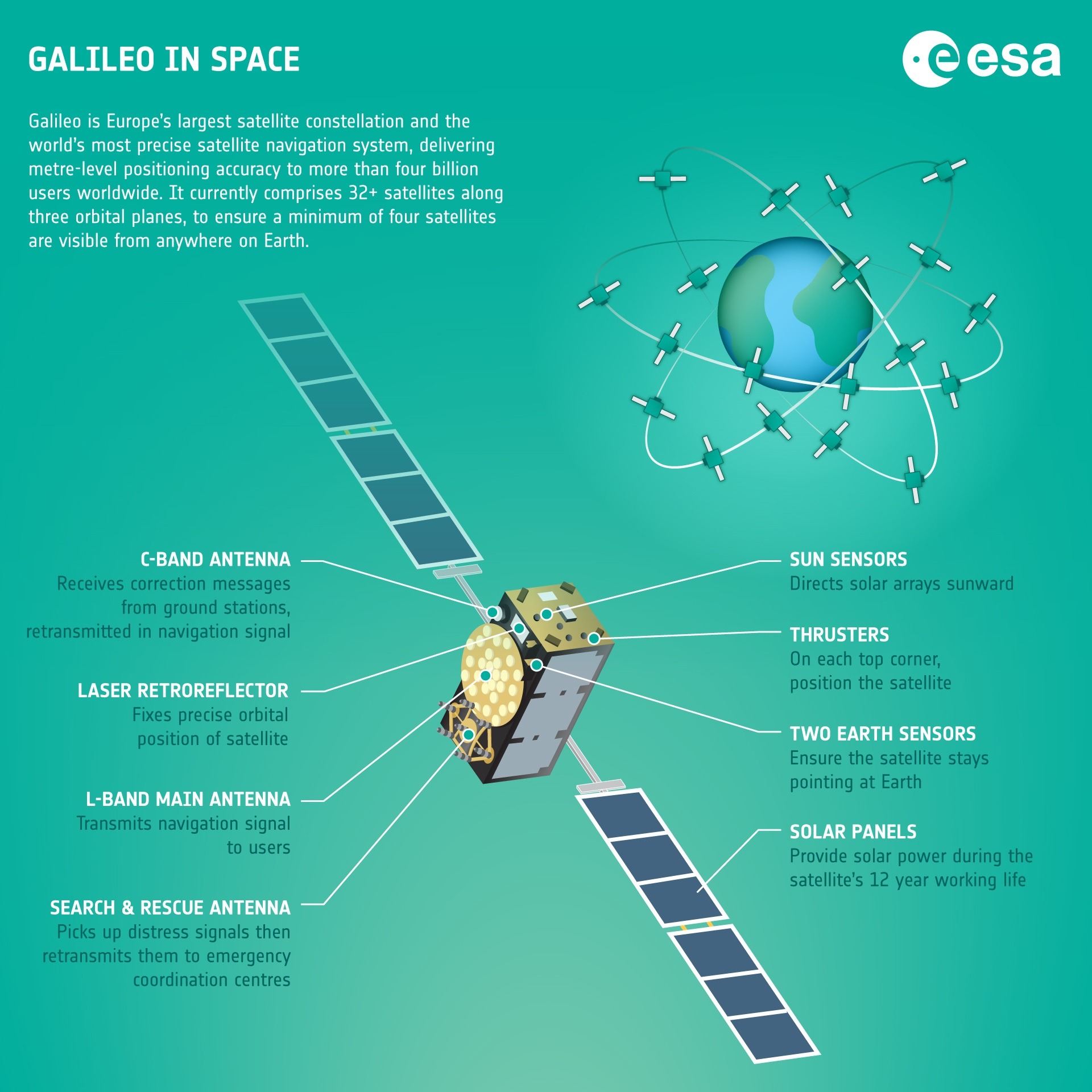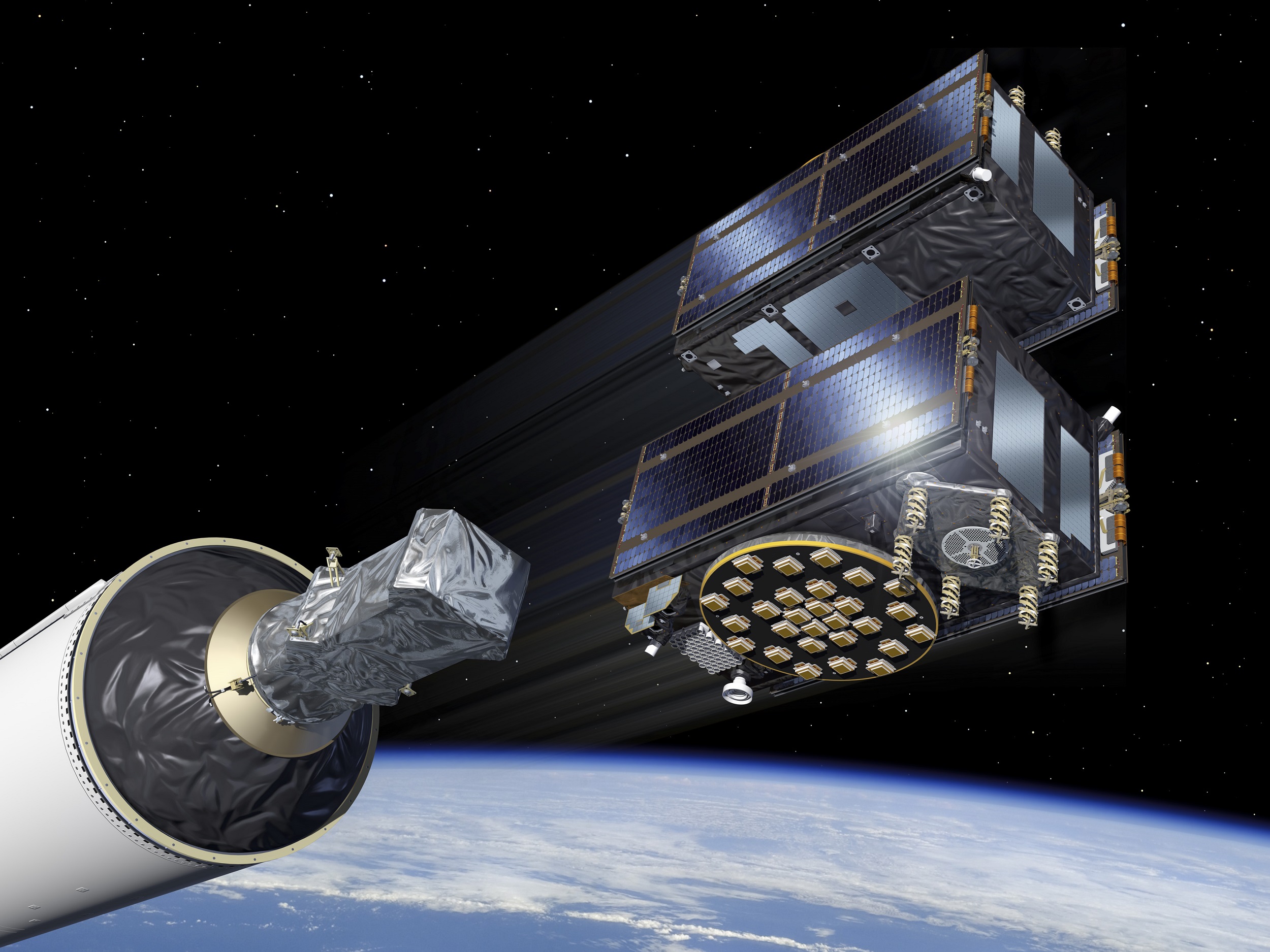GPS Interference on von der Leyen’s Flight Triggers Galileo Upgrade
GPS jamming sparks European action to strengthen Galileo’s resilience and navigation security.
European Commissioner for Defence and Space Andrius Kubilius announced on Monday a plan to deploy additional Galileo navigation satellites in Low Earth Orbit (LEO) and strengthen interference detection systems, following the GPS signal jamming experienced by European Commission President Ursula von der Leyen’s aircraft during its approach to Bulgaria on Sunday.
“Jamming and spoofing harm our air, maritime and transport economies. Our EU Galileo space project can help! We already provide authentication services to detect spoofing. We will increase satellites in Low Earth Orbit for robustness and enhance interference detection,” Kubilius stated in a post on X.
The announcement highlights the strategic importance of the EU’s satellite navigation system, developed as a civilian-controlled alternative to the U.S. GPS and Russian Glonass, amid an increasingly hostile electronic warfare environment linked to the war in Ukraine.
The Bulgaria Incident and the European Response
The GPS disruption occurred while von der Leyen was touring EU member states bordering Russia, Belarus, and the Black Sea. According to Bulgarian authorities, the aircraft lost GPS signal during its approach to Plovdiv, forcing air traffic controllers to switch to ground-based navigation systems to ensure a safe landing. Brussels described the interference as “flagrant” and identified Russia as the primary suspect.
The European Commission condemned the incident, calling it a stark warning about escalating electronic warfare activity in Eastern Europe. “This incident reinforces our unwavering commitment to strengthening defence capabilities and supporting Ukraine,” said a Commission spokesperson.
Galileo: Europe’s Sovereign Answer
The Galileo system, operated by the EU Agency for the Space Programme (EUSPA) and developed alongside the European Space Agency (ESA), currently comprises 28 satellites in Medium Earth Orbit (MEO). Galileo delivers high-accuracy global positioning under civilian control, with extended coverage to high latitudes.

In addition to its future centimetre-level accuracy, Galileo provides an open authentication service that allows receivers to verify the authenticity of signals, a key tool against spoofing attacks.
Meanwhile, the Second-Generation Galileo (G2) program is advancing, integrating satellites with electric propulsion, improved antennas, inter-satellite links, and advanced atomic clocks. These upgrades are designed to offer greater resilience against jamming and electronic threats.
LEO Satellites to Strengthen Navigation Resilience
Kubilius’ announcement introduces a significant new element: the deployment of additional Galileo satellites in Low Earth Orbit, complementing the current MEO constellation. This additional satellite layer is expected to enhance interference detection, improve signal availability in contested environments, and boost operational redundancy.

Although a specific launch timeline has not been disclosed, ESA sources confirmed that the G2 development phase is already in advanced ground-segment compatibility testing, and the first flight units are in production.
Electronic Warfare Threats to Aviation Safety
GNSS (Global Navigation Satellite System) interference is a widely used tactic by Russia in high-tension areas from the Baltic region to the Black Sea. The European Union Aviation Safety Agency (EASA) has issued repeated warnings on the growing frequency of jamming and spoofing incidents, forcing flight crews to train for operations without GPS, relying on inertial navigation systems and ground-based aids.
What was once mostly a military challenge is increasingly spilling over into civilian aviation, raising operational safety concerns and strengthening the case for European investment in autonomous navigation technologies.
Beyond Galileo, countries like France are developing daytime celestial navigation systems and advanced inertial platforms to reduce reliance on satellite signals vulnerable to electronic attack. The combination of multi-orbit satellite constellations, autonomous navigation solutions, and enhanced interference detection is emerging as the future of aviation and maritime navigation in Europe.

/https://aviacionlinecdn.eleco.com.ar/media/2025/09/constelacion_galileo.jpeg)
Para comentar, debés estar registradoPor favor, iniciá sesión